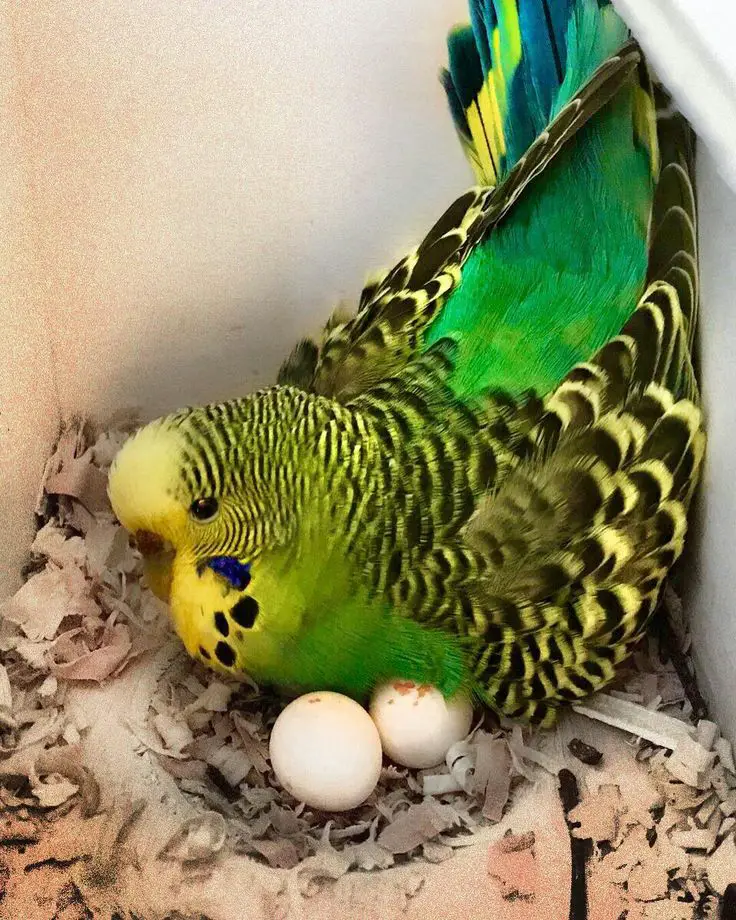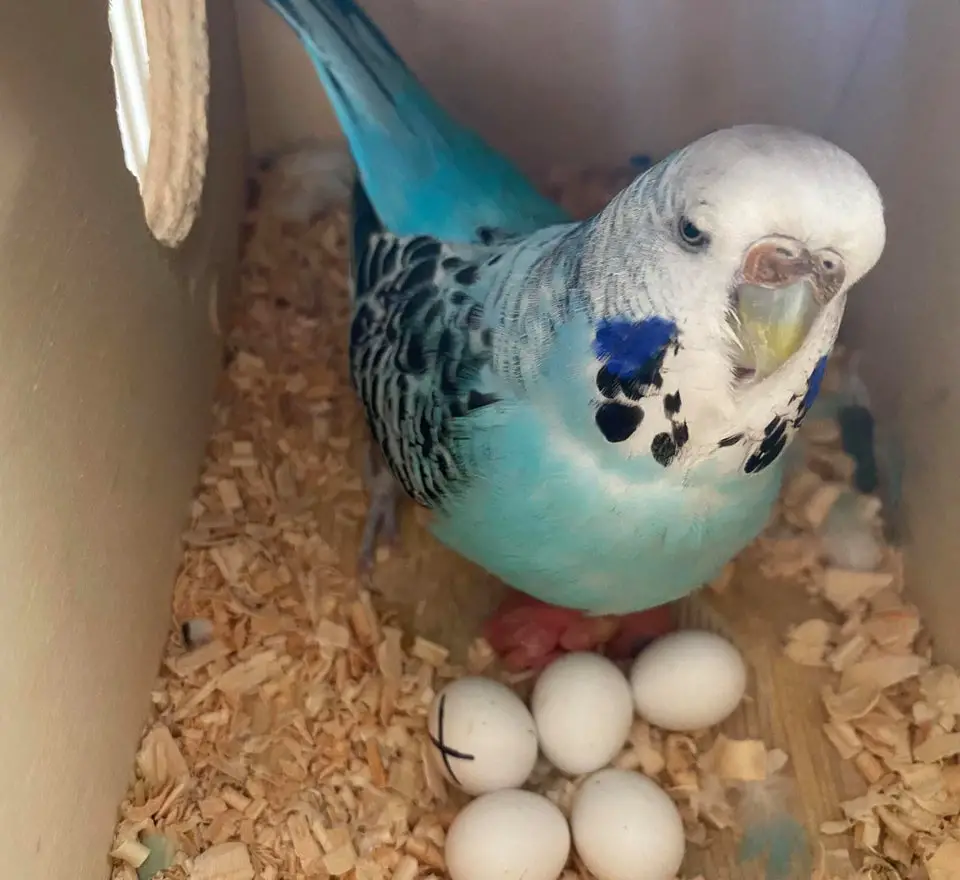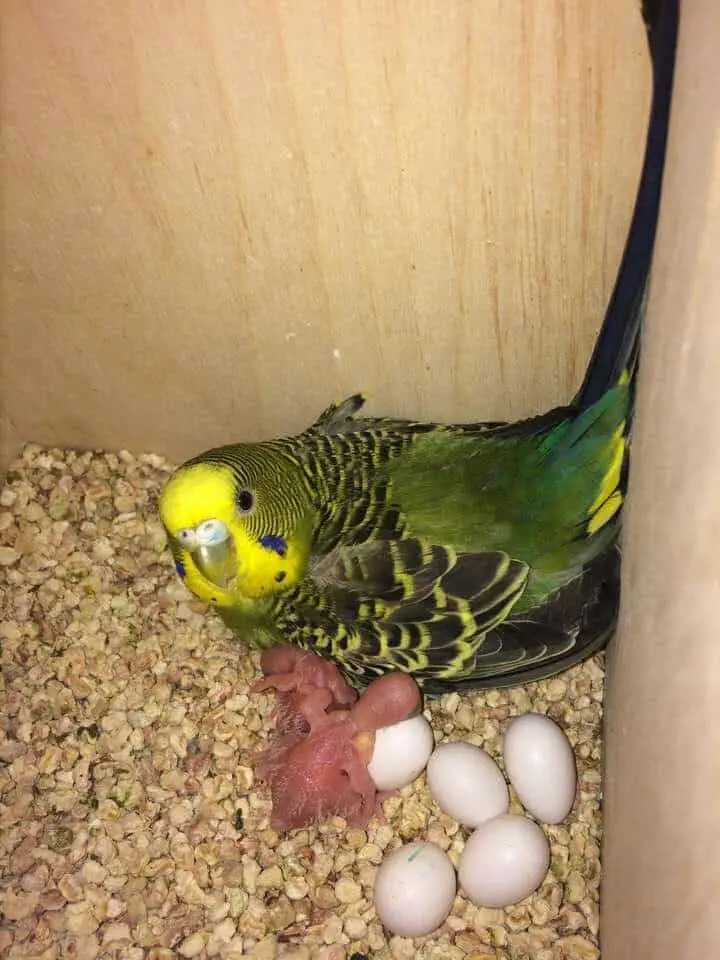Introduction
How To Take Care Of Parakeet Eggs: Parakeets, with their vibrant plumage and cheerful chirps, make delightful companions. If you’re fortunate enough to have a pair of parakeets in your home, you may find yourself facing the exciting prospect of parakeet eggs. However, the journey from eggs to fledgling parakeets is a delicate and crucial process that requires careful attention and nurturing. We will explore the intricate art of taking care of parakeet eggs, ensuring the health and happiness of both the parent parakeets and their soon-to-hatch offspring.
Parakeet eggs are a testament to the beauty of nature’s cycle, but they also come with responsibilities. To successfully hatch and raise parakeet chicks, you must be well-informed about their dietary, environmental, and emotional needs. It will walk you through each step of the process, from identifying a fertile egg to creating the perfect nest environment and providing the necessary nutrition for the growing embryos. We’ll also discuss the importance of monitoring the parent parakeets‘ behavior and health during this time, as their well-being directly impacts the success of the breeding process.
Join us on this journey of discovery as we delve into the fascinating world of parakeet reproduction and learn how to give these beautiful birds the best possible start in life.

Can I touch my parakeets eggs?
It may also be due to the fact an egg has been handled by the bird’s owner and no longer smells like her own. Always wear clean gloves when handling the eggs. Better still, don’t handle the eggs at all.
It’s generally best to avoid touching your parakeet’s eggs as much as possible. Parakeet eggs are fragile and sensitive during the incubation period, which lasts about 18 to 21 days. When you touch the eggs, you risk transferring oils and bacteria from your hands to the eggs, which can harm the developing embryos. The eggs have a protective coating that helps maintain their cleanliness and moisture levels, and excessive handling can disrupt this natural barrier.
If you need to move the eggs for any reason, it’s crucial to do so with clean hands, ideally using disposable gloves. Gently pick up the eggs and place them in a small container lined with a soft material like tissue or paper towels. Make sure not to rotate or flip the eggs when you move them, as this can damage the embryos inside. Keep the eggs in the same position as they were in the nest.
Remember that parakeets are typically protective of their eggs, and interfering too much can cause stress for the parent birds. It’s best to observe from a distance and let them handle the incubation process unless there’s a compelling reason to intervene.
How long do parakeet eggs take to hatch?
17-20 days
The average incubation period for parakeet eggs is 17-20 days – they can hatch a bit earlier or later. And this time frame is for each egg – since they are laid one day apart, each egg will hatch one day apart.
Parakeet eggs usually take approximately 18 to 21 days to hatch. The exact duration may vary slightly depending on factors such as temperature and the specific breed of parakeet. During this incubation period, the parent parakeets take turns sitting on the eggs to keep them warm and ensure proper development.
It’s essential to provide a stable and warm environment during this time to support successful incubation. Keep the nesting area at a consistent temperature between 98 and 100 degrees Fahrenheit (37-38 degrees Celsius). Fluctuations in temperature can negatively affect the hatching process, so maintaining a stable and suitable environment is crucial.
Monitor the eggs closely, as they should start showing small cracks and pips toward the end of the incubation period. Once you see these signs, it won’t be long before the chicks begin to hatch. Be patient and avoid disturbing the nest during this critical time, allowing the parent parakeets to do their job.
Do parakeet eggs have to be kept warm?
Incubation: Heating Egg. For an egg to develop normally, it must be exposed for a considerable length of time to temperatures a few degrees below the normal 104 degrees F (40 degrees C) avian body temperature. Indeed, the ideal incubation temperature for many birds’ eggs is about human body temperature, 98.6 degrees F.
Yes, parakeet eggs must be kept warm for successful incubation and hatching. Maintaining a consistent temperature within the nest is vital to ensure the development of the embryos. The ideal temperature range for parakeet eggs during incubation is between 98 and 100 degrees Fahrenheit (37-38 degrees Celsius).
Parent parakeets take turns sitting on the eggs to provide the necessary warmth. They use their bodies to regulate the temperature and humidity around the eggs. If the eggs are exposed to temperature fluctuations or become too cold, it can lead to developmental issues, delayed hatching, or even the death of the embryos.
To help keep the eggs warm, ensure that the nesting box or cage is located in a draft-free area with a stable room temperature. You can also provide additional heat sources, such as a low-wattage heat lamp or heating pad, to maintain the desired temperature within the nesting area. However, be cautious not to overheat the eggs, as excessive heat can be just as harmful as cold.
Regular monitoring of the temperature and observing the behavior of the parent birds is essential to ensure that the eggs remain adequately warm throughout the incubation period.
Will parakeets eat their eggs?
A loose seed mix will not provide the nutrition they need. The hen loses a lot of calcium and protein when forming and laying each egg, so if she feels too depleted, she eats her own eggs to replace the nutrition.
Parakeets do not typically eat their eggs. In fact, it is quite rare for parakeets to intentionally destroy or consume their own eggs. Instead, they are usually highly protective of their eggs and work diligently to incubate and care for them.
However, there can be exceptions to this rule. Sometimes, if the eggs are not fertile or if there are certain stress factors, such as disturbance or inadequate nesting conditions, the parent parakeets may abandon the eggs or inadvertently damage them. In such cases, it might appear as though they are eating the eggs, but their behavior is more likely a response to the eggs being unsuitable for hatching.
To ensure the well-being of the eggs and minimize the risk of abandonment or accidental damage, it’s crucial to provide a calm and secure nesting environment for your parakeets. Avoid unnecessary disturbances, maintain appropriate temperature and humidity levels, and give the parent birds the space and privacy they need to care for their eggs properly. If you suspect any issues with the eggs or the parent parakeets’ behavior, consult a veterinarian or avian expert for guidance and assistance.
Do male parakeets sit on eggs?
Both male and female help incubate the eggs and care for the chicks. In some cases they take turns sitting on the eggs, and sometimes the male helps the female by feeding her, like her mate is doing. If you took him out, his only concern would be to return to his mate and eggs or chicks.
In most cases, male parakeets do not sit on eggs. Incubation duties are primarily the responsibility of female parakeets. Female parakeets typically incubate the eggs to keep them warm and ensure proper development while the male parakeet’s role is to support her during this time by providing food, guarding the nest, and occasionally sitting on the eggs briefly while the female takes a break.
It’s important to note that parakeets are highly cooperative parents, and the male’s involvement in caring for the eggs and later the chicks is essential for the breeding pair’s success. The female spends more time incubating the eggs, but the male plays a crucial role in the overall care of the nest, ensuring the eggs’ safety and providing food for both the female and, once hatched, the chicks.
Why is my parakeet not sitting on her eggs?
This is very common with first clutches. They really don’t know what to do, so they end up messing things up in some way. Let her practice with these eggs, then once she stops, remove the nest box and rest the pair for 6 months. Then you can replace the box and let them try again.
If your female parakeet is not sitting on her eggs, several factors could be at play. First, ensure that the environment is suitable for nesting. Parakeets require a quiet, safe, and secure space to lay and incubate their eggs. Any disturbances or perceived threats can cause the female to abandon the nest.
Another reason for a parakeet not sitting on her eggs could be infertility. If the eggs are not fertile, the female may recognize this and abandon them. To determine if the eggs are fertile, you can consult with an avian veterinarian or observe them for signs of development, such as visible veins or embryo movement, which should be present in fertile eggs.
Health issues can also lead to a parakeet’s neglect of her eggs. If the female is unwell or experiencing nutritional deficiencies, she may not have the energy or inclination to care for the eggs. Ensure that your parakeet is in good health and provide a balanced diet to support her reproductive needs.
Stress or disruptions in the parakeet’s environment can cause her to neglect the eggs. Ensure that the nesting area is calm, quiet, and free from disturbances. Avoid frequent handling or moving of the cage during the incubation period.
If the issue persists, consult with an avian veterinarian to rule out any underlying health problems and receive guidance on creating the best conditions for successful egg incubation.
Do female parakeets lay infertile eggs?
However, female pet birds can also lay eggs, even without the presence of a male. Such eggs are infertile and will not hatch, even if incubated. A bird in the peak of health on an ideal diet may be able to sustain some egg production without serious harm.
Yes, female parakeets can lay infertile eggs. Parakeets, like many birds, have a natural reproductive cycle that includes laying eggs, whether or not a male is present. These unfertilized eggs are infertile and will not develop into chicks. This behavior is not uncommon and can occur periodically, especially if the female is in a breeding mood.
It’s essential to understand that laying eggs can be physically demanding for female parakeets. Frequent egg-laying can lead to calcium depletion, which can result in health problems like egg-binding. To minimize the risk of these issues, provide a well-balanced diet with proper calcium supplementation and create a nesting environment if you plan to breed your parakeets. If egg-laying becomes excessive or problematic, consult with an avian veterinarian for guidance on managing this behavior.
Why do parakeets drop their eggs?
If they throw the eggs out after sitting on them for a while, the eggs likely aren’t fertile. However, they should not be allowed to lay eggs more than twice a year, so if she has already laid 5-6 clutches, unless this was over the course of years, then she has laid way too many eggs in a short time.
Parakeets may drop their eggs for several reasons, and it’s essential to address the underlying causes to prevent this from happening. Some common reasons why parakeets may drop their eggs include:
Stress: Stress can lead to egg-dropping behavior in parakeets. Ensure that the nesting environment is quiet, free from disturbances, and provides a sense of security for the birds. Avoid sudden changes or disruptions in their surroundings.
Inexperience: Young or first-time breeding parakeets may not have the necessary parenting skills. They may accidentally knock the eggs out of the nest or struggle with incubation.
Infertility: If the eggs are infertile, the female may recognize this and drop them. It’s essential to confirm the fertility of the eggs to avoid unnecessary stress on the parakeet.
Health Issues: Illness or nutritional deficiencies can lead to weakness in the parakeet, making it more likely to drop eggs. Ensure that your parakeet is in good health and receiving proper nutrition.
Inadequate Nest: An improperly designed nest can make it easier for eggs to fall out. Ensure that the nesting box or nesting material is suitable and secure.
To address egg-dropping behavior, address the root cause and provide a nurturing environment. Observe the parakeet’s behavior and consult with an avian veterinarian if necessary to rule out any underlying health issues or nutritional deficiencies. Properly managing the nesting area and ensuring the parakeets feel safe and comfortable are key steps in preventing the dropping of eggs.

Conclusion
Caring for parakeet eggs is an extraordinary journey, filled with patience, dedication, and the joy of witnessing new life. From the moment you notice the first tiny cracks in the eggshell to the day the young parakeets fledge and explore the world, you’ve embarked on a remarkable adventure of nurturing and love. We’ve explored the essential steps to ensure the well-being of both parent parakeets and their precious eggs.
Remember, successful egg care involves maintaining a consistent environment, providing proper nutrition, and closely observing the behavior of your parakeet parents. By offering warmth, security, and support, you give these delicate eggs the best chance to hatch healthy chicks and thrive.
As you continue on your journey of raising parakeet chicks, cherish the moments of bonding and growth. Watch as they transform from fragile eggs to vibrant, chirping companions. Your dedication to their care is a testament to your love for these remarkable birds, and the rewards of this journey are immeasurable.
So, as you embark on this adventure of nurturing parakeet eggs, know that you are contributing to the preservation of these charming creatures and creating a world filled with the melodious sounds of happy parakeets.



No Comments